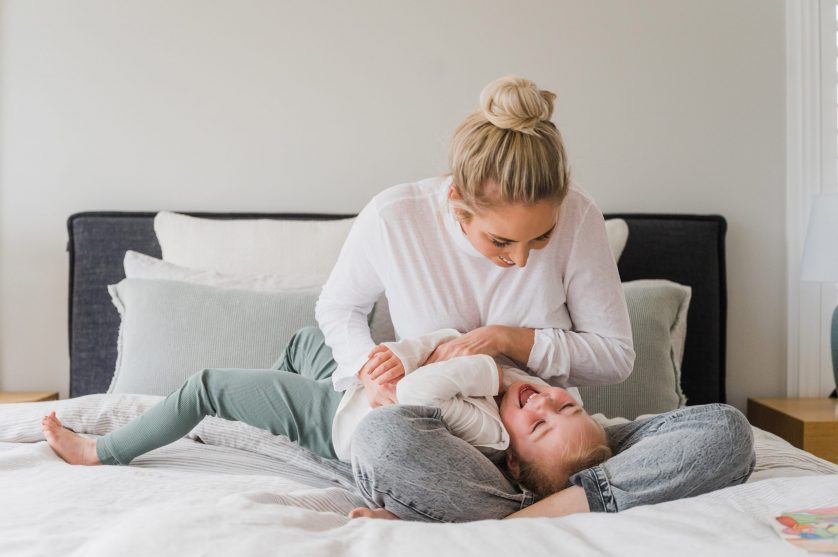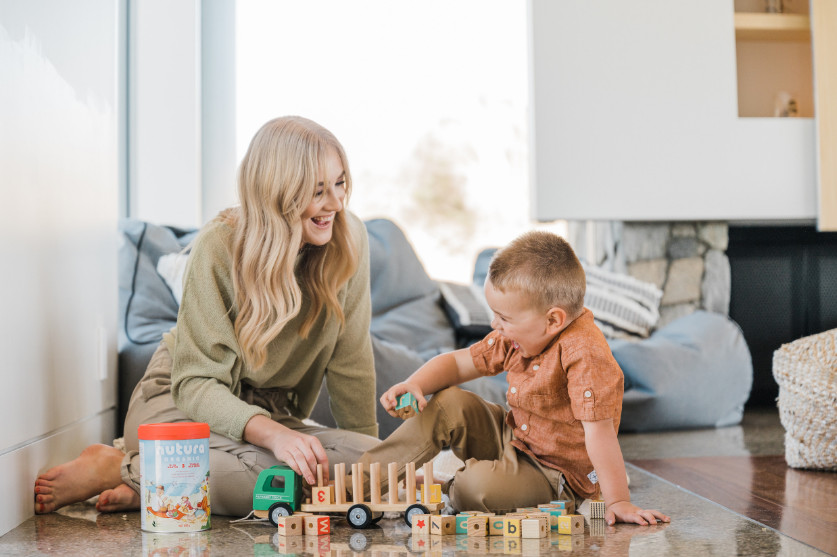How to Strengthen Your Parent-Child Bond

One of the most important relationships in life is between parent and child, but it’s important to remember that the parent-child relationship is fluid. Sometimes you’ll feel overwhelmingly close to your children, and then other times you might start to feel worlds apart. This is why building and maintaining the bond with your children takes a bit of extra work and care to last through adulthood.
Whether you didn’t feel that immediate bond after giving birth or constant disagreements with your teen has left you feeling discouraged, building or rebuilding a strong connection is possible at any age. Below we’re breaking down some strategies by age group for strengthening your parent-child bond.
Babies

- Give plenty of cuddles: Babies thrive on touch, and physical connection supports emotional connection for both baby and mum making cuddle time extra important.
- Respond to crying: Crying is the only way babies know how to get their needs met, so when you respond to it, it lets the baby know that you’re there and can rely on you.
- Talk to them: Even if you’re just explaining what you’re doing, talk to your baby as much as possible so you stay connected and they learn your voice.
Toddlers

- Say “I love you” and hug often: Even when your toddler is on your last nerve, expressing love to your child and giving hugs can make you and your child feel more connected.
- Play together one-on-one: Playing and laughing really is the best medicine for mum and toddler. If you have multiple children, plan special one-on-one activities to build precious memories.
- Listen and ask questions: Communication is key to strong relationships. Instead of brushing off something seemingly “random” your toddler says, use phrases like “oh really?” and “tell me more about that.”
Teenagers
- Give the right amount of space: Teens still crave one-on-one time, but make sure it’s on their terms and something they are interested in. If they decline, let it be okay.
- Listen, listen, listen: Listening should be the main focus in teen years. Let them talk about their interests, school, and friends and remain open-minded, so they feel comfortable opening up to you.
- Be genuinely supportive: Being present with your teen and supporting their interests both physically and emotionally will show them that you care and you’re there. Plus, it gives you a better understanding of your teen.
While we could name a hundred ways to bond with your children throughout these stages of life, these are just our top strategies to get you thinking. If you put the work into the relationship, we’re sure you will start to feel closer than ever to your children, whether they’re barely one or already in high school.



